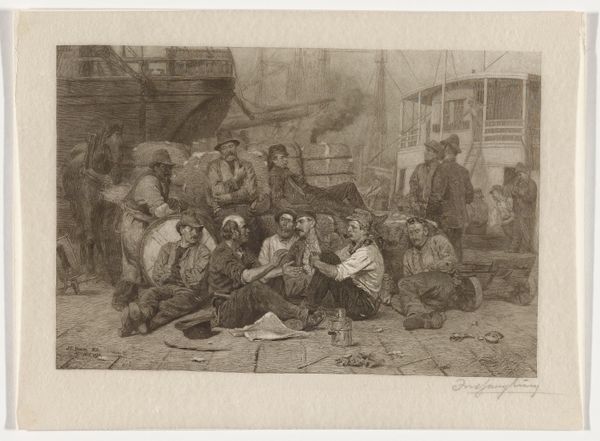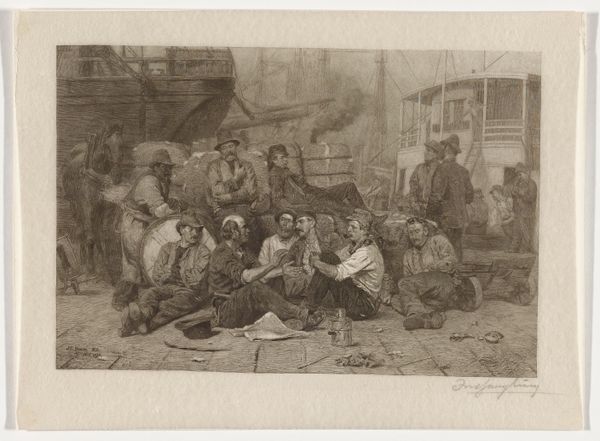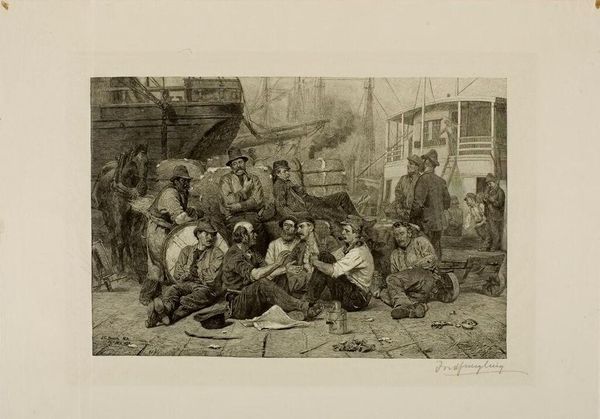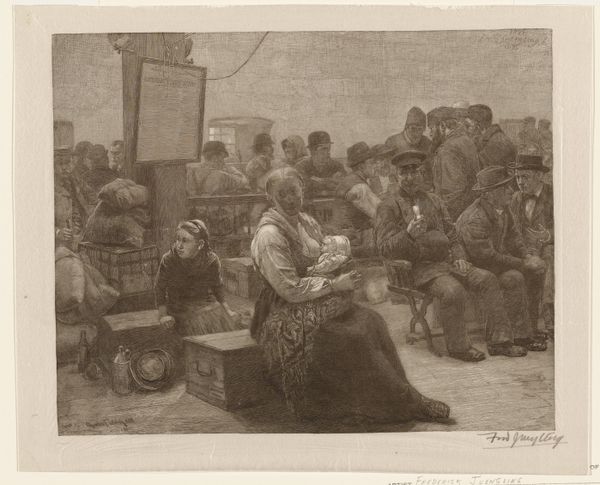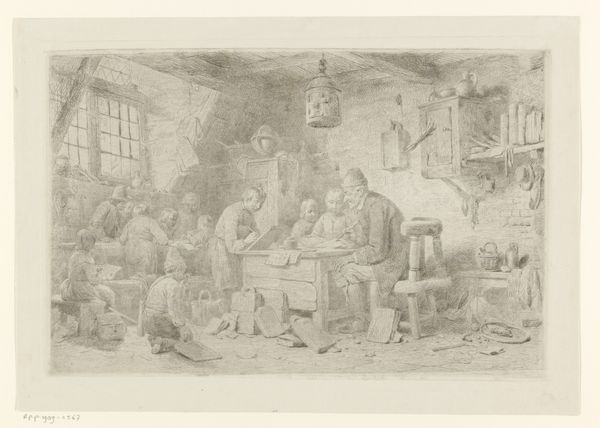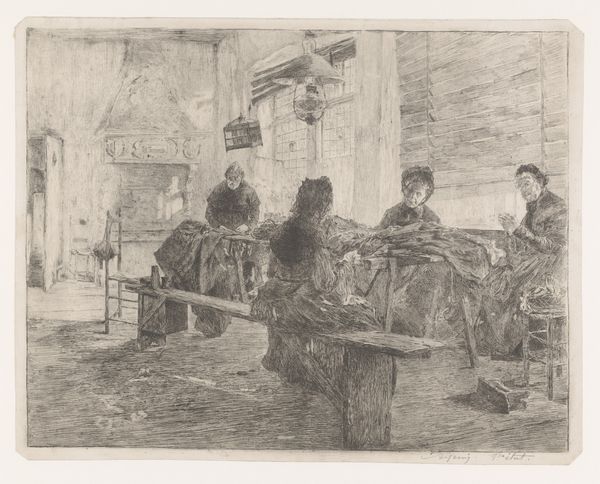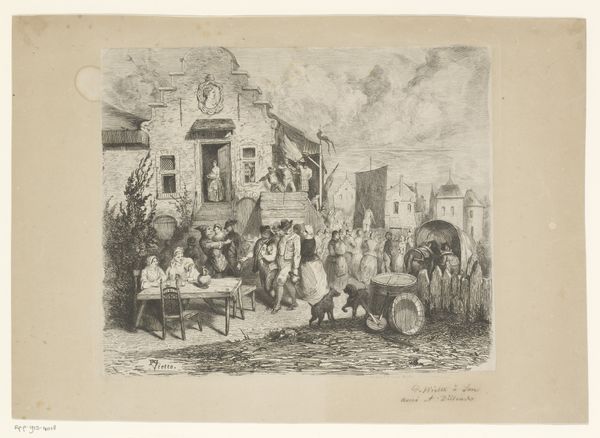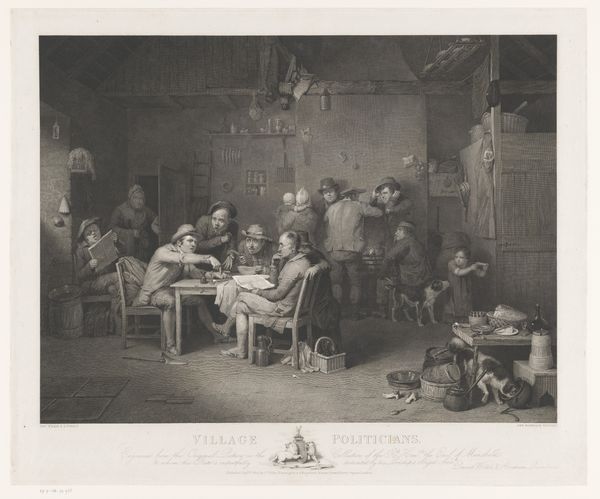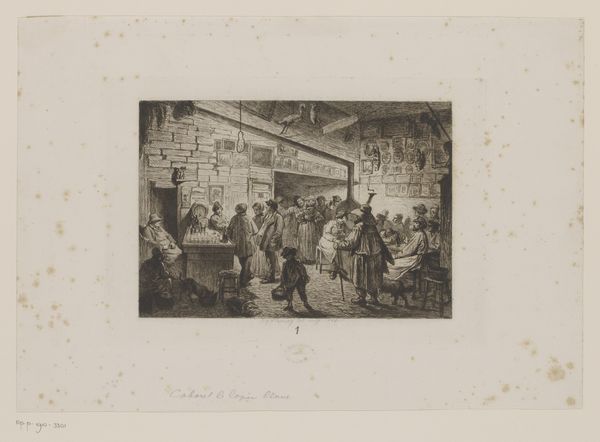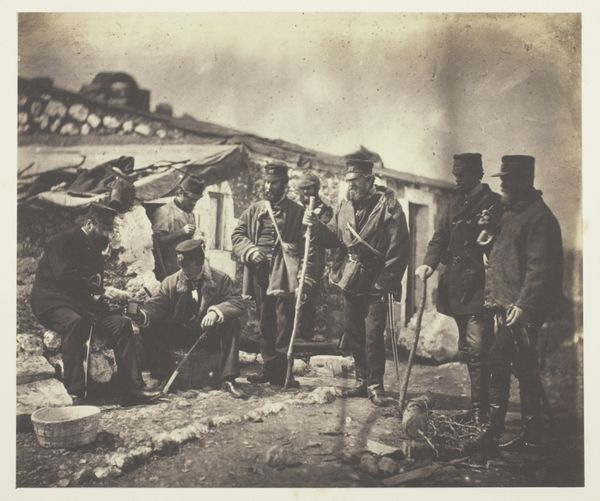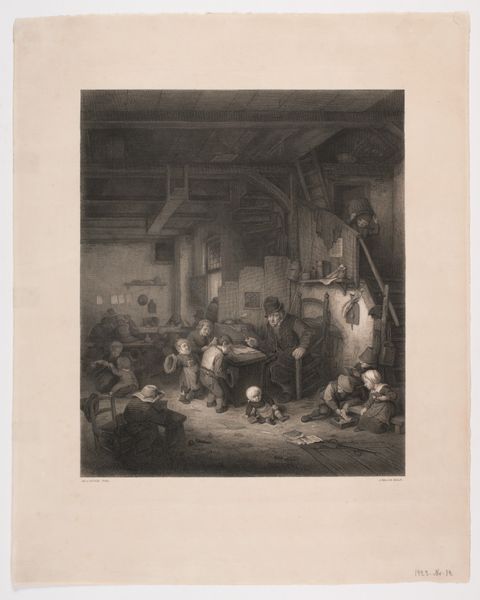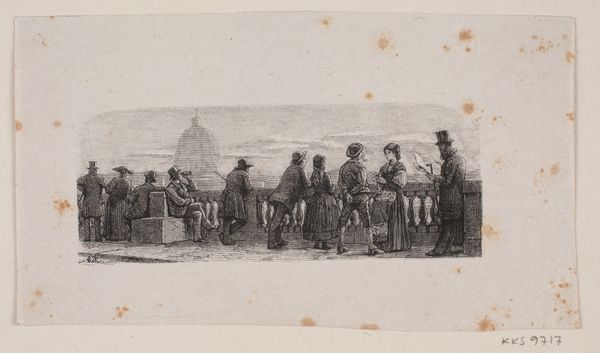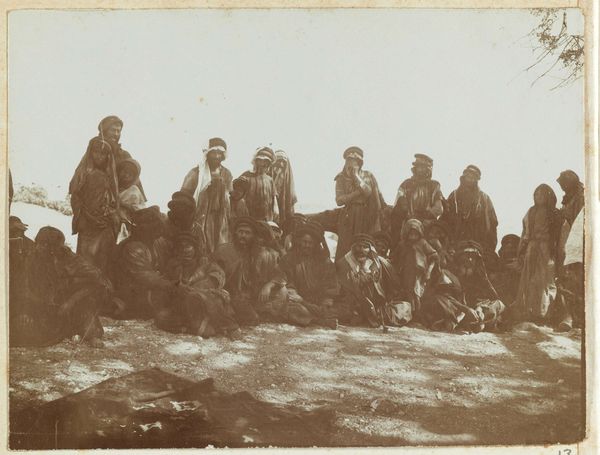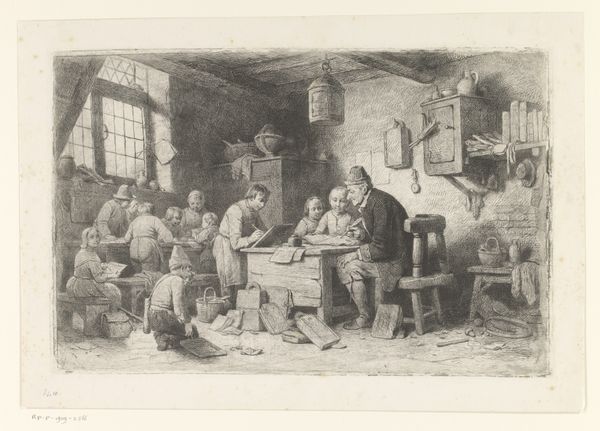
print, woodcut, wood-engraving
#
pencil drawn
# print
#
woodcut
#
united-states
#
genre-painting
#
wood-engraving
#
realism
Dimensions: 7 5/16 x 10 13/16 in. (18.57 x 27.46 cm) (image)9 3/8 x 12 3/4 in. (23.81 x 32.39 cm) (sheet)
Copyright: Public Domain
Curator: Here we have "The Longshoremen's Noon," a wood engraving created in the late 19th century by Frederick Juengling, currently in the collection of the Minneapolis Institute of Art. Editor: It’s striking how effectively Juengling captures the feeling of exhaustion in this piece. There's a pervasive sense of weariness radiating from each figure. Curator: Exactly. Juengling’s commitment to Realism highlights the often-overlooked lives of working-class individuals, focusing on the physical and emotional tolls of their labor. What narratives does this particular image spark for you? Editor: I'm drawn to the intimacy among these workers, their interactions revealing solidarity but also hinting at socio-economic stratification of labor, which often marginalizes dockworkers. The historical role of ports and shipping in shaping the global capitalist economy also adds context, where bodies like theirs bear the cost. Curator: Juengling offers no glorification, only raw portrayal. He meticulously renders the scene – the casual postures, the scattered tools, even the layers of grime. Juengling’s approach speaks volumes about his politics and values about American labor. The choice to use a readily accessible medium like wood engraving also suggests an intent for broader circulation and accessibility. Editor: This aligns with a period grappling with increasing urbanization and labor rights. How do we place this particular depiction of labor, compared with the period’s increasing visual representation of a middle class that wanted to disassociate from work, rather than show images celebrating it? Curator: Well, I think that’s exactly the question Juengling pushes to the fore. Juengling underscores class consciousness, prompting reflection on themes such as exploitation and agency within rapidly transforming industries of that era. Editor: Thinking about his possible readership allows further engagement, challenging dominant narratives about industrial labor during late nineteenth century. His choice in focusing on them during their rest offers them both dignity and acknowledgment. Curator: I concur. Juengling invites us to reflect on what is recorded in the annals of history, whose narrative prevails and from which standpoint do we perceive history? Editor: This piece is a reminder of whose shoulders history sits on. Curator: Absolutely. It compels reflection about whose stories matter, what they signify and the crucial position art plays in chronicling lives commonly pushed to the periphery.
Comments
No comments
Be the first to comment and join the conversation on the ultimate creative platform.
